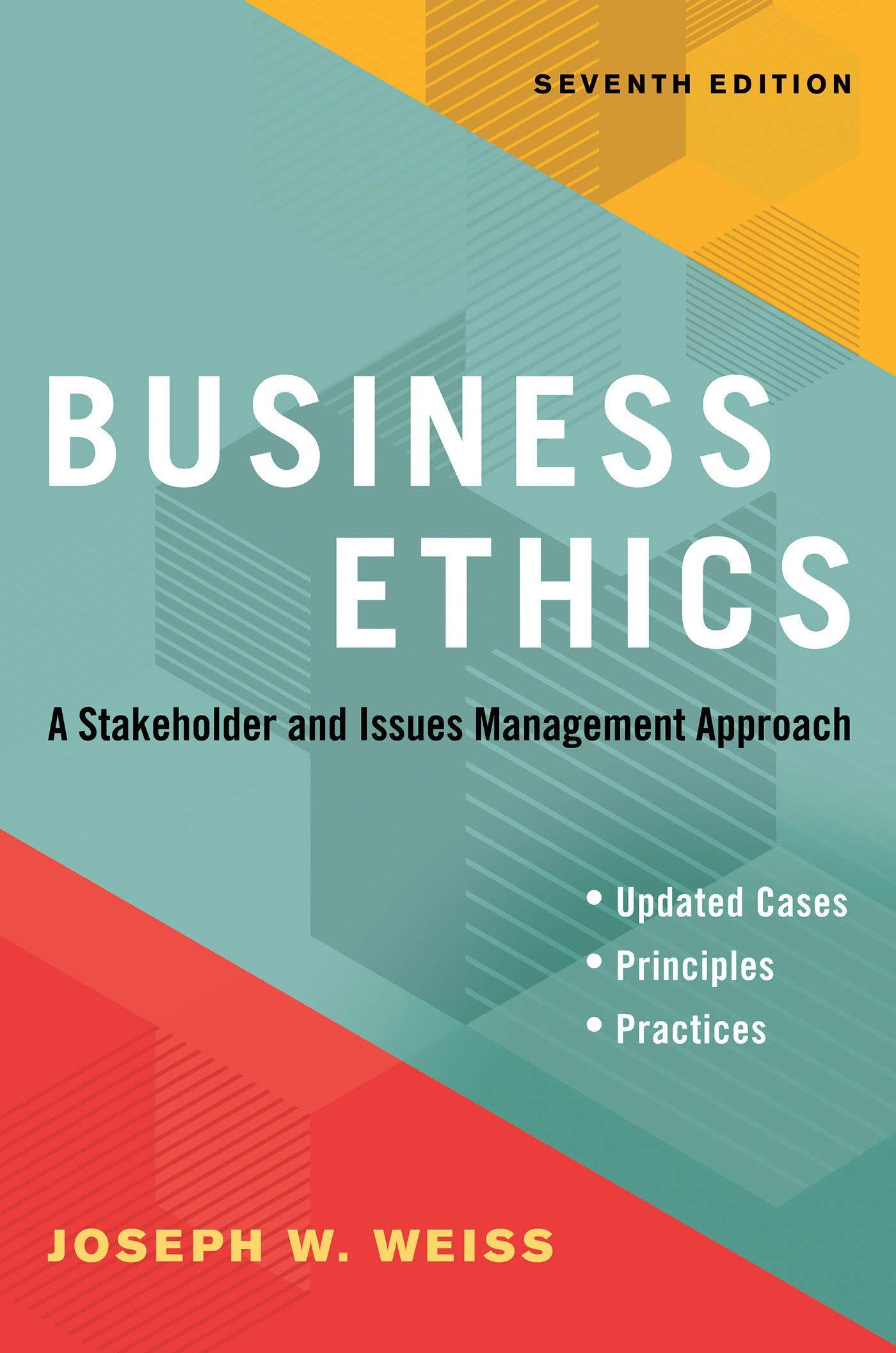I am a project manager who supports corporate-citizenship-funded programs for our large insurance company. I am responsible
Question:
I am a project manager who supports corporate-citizenship-funded programs for our large insurance company. I am responsible for helping choose proposals to support for environmental, community education, and alumni-related projects. Last year, the division in which I work facilitated 120 sponsorships, engaged 100 employees, and provided nearly 25 speakers to various programs.
We have a set of criteria to guide our decision-making process and to help proposals that demonstrate real need. This focus aligns with the mission of the company. Still, there are many organizations with proposals that are high profile, legacy, and/or supported by executives at our firm. These executivebacked requests sometimes receive preferential treatment over the requests that do meet our needs criteria. Several individuals and groups in the company who are aware of these exceptions either shrug it off or feel comfortably conflicted.
Executives form close ties with some of the groups who receive funding without going through our formal process. A dilemma our group faced last year occurred when one executive pressured us to fund a nonprofit that his sister founded. It was a small nonprofit with an environmental focus in an unassigned area and community in which our program operates. This is not the only time executives have bypassed our company policy, but it is one that smacked of nepotism!
While I hesitate to judge whether or not this particular executive was right or wrong, I continue to have issues with the assumed power and authority that executives in our firm take to trump our mandated mission and decisions with regard to funding needy programs. What more should I have done (should I do) to stand up for my personal and professional beliefs?
My reasoning to execute the sponsorship of that particular program was because I was afraid of the backlash if I did not act. The organization has created a culture where this is acceptable, and even though I am not comfortable with this part of our culture, I cannot do much to change it at this point. I cringe at this particular situation and others since I was raised with an ethic of fairness and acting justly toward others. If all people cannot act in a certain way, then no one should act that way. It is difficult managing this process in the real world because people and organizations inevitably have competing interests, stakes, and power in the hierarchy of a company.
Questions
1. What exactly is the conflict of interest here?
2. Is this a serious conflict of interest or just a “business as usual” situation? Explain.
3. What would you have done in this situation before the executive took a decision to fund the sister’s program if you had been this project manager? Explain.
4. Describe the ethical principles (or reasoning) you used in your answer to question 3.
Step by Step Answer:

Business Ethics A Stakeholder And Issues Management Approach
ISBN: 9781523091546
7th Edition
Authors: Joseph W. Weiss





